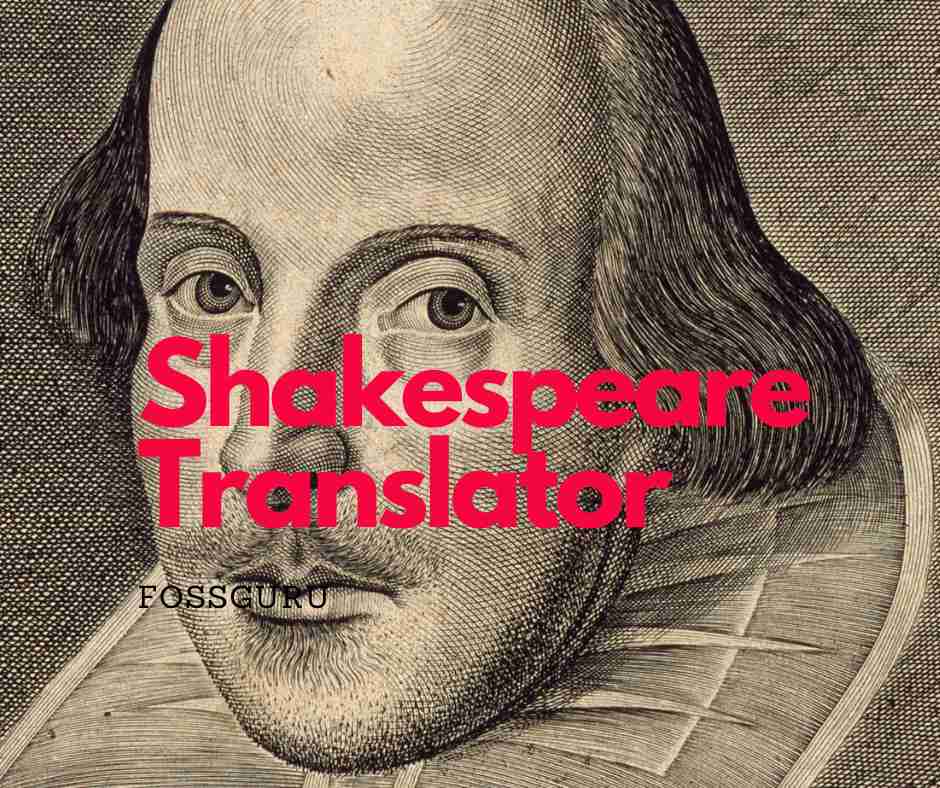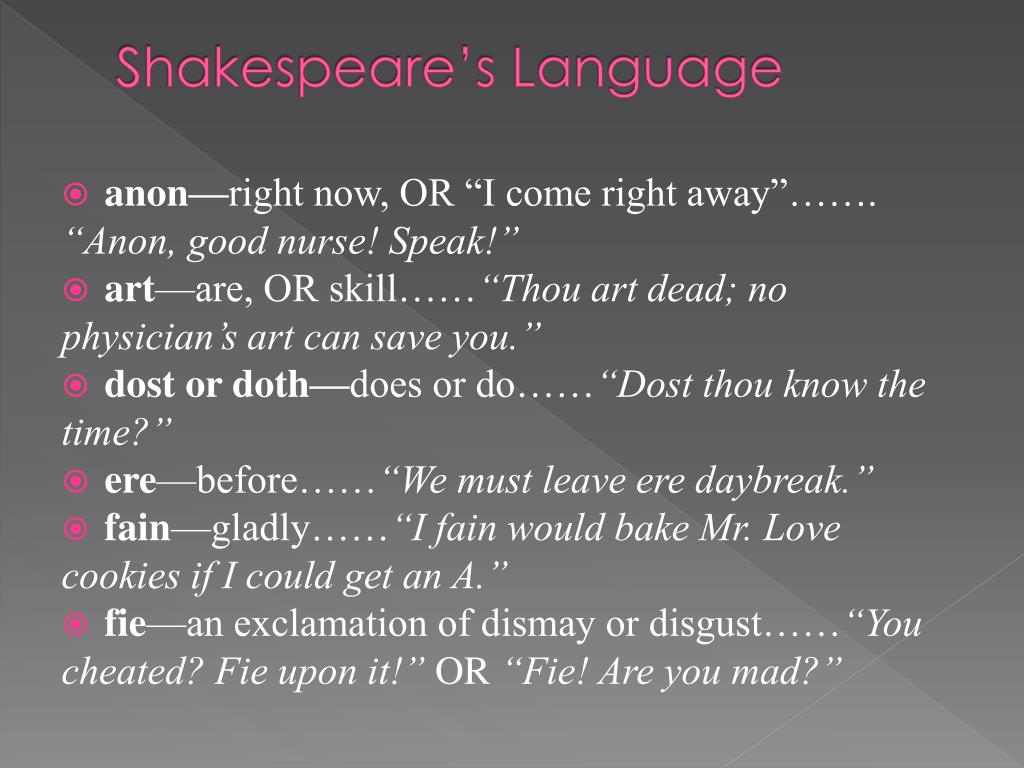

This panel will discuss the typical range of problems and opportunities arising from both the original texts and the target languages and cultures which combine to make Shakespeare translation the rich field that it is today. Shakespeare remains the preeminent translated playwright around the world, whose apparently unstoppable globalization and localization in traditional and non-traditional formats seem essential to the processes of intercultural communication that underscore translation. Nely Keinanen, University of Helsinki, Finland Meanings of any unusual Shakespearean words that you encounter whilst reading the works in the language coined by William Shakespeare can be checked in the online Shakespearean Dictionary by clicking on the appropriate letter of the alphabet.Shakespeare's 'Great Feast of Languages': Contemporary Issues in Shakespeare Translationĭaniel Gallimore, Kwansei Gakuin University, Japan Some of the commonly used exclamatory words were: Elizabethan ExclamationsĮxclamatory words and phrases were common, especially in literature. Cicero, in particular, was imitated a lot. Thus, the Latin syntactical style influenced English greatly. It was believed that the form of speech and writing used by the great ancient scholars must be used in order to refine their own language. Language in the Renaissance period was heavily influenced by Latin. A lot of turbulence happened due to the introduction of the Renaissance. Words were constantly being added to the vocabulary of people during the Elizabethan times and writing styles were changing. Therefore, Elizabethan sentences need to read as they were, not as they “should be” as they regarded by some people. Modern grammatical rules were introduced centuries later. There were no strict grammatical rules in the Elizabethan times and therefore sentence construction was easy. Despite all the differences, there were still many words that were spelt the same way as they are today.Įlizabethan book Elizabethan English grammar Although, certain patterns were followed and scholars were trying to make standard settings to the language. Spellings were not strictly set in the Elizabethan times and it is mostly up to the person who was writing. And this is hardly surprising when the expressions and their meanings have been obsolete since the Elizabethan era! Elizabethan Literature Spelling in Elizabethan times Shakespeare translations and understanding the real meanings behind some of the Shakespeare languages in the great plays and sonnets can be difficult.

Numbers were frequently written in lower case Roman numerals, with the last “i” in a number written as a “j”.The written form of Elizabethan Numbers also cause confusion in translation.The word “the” was therefore written in a similar way as “ye” would in the modern-day

Another letter which resembled a “y” was used to represent the “th” sound.The letter “u” was used only in the middle of a word, and the “v” was used at the beginning!.The “j” was usually used as the capital form of the letter “i” in the Elizabethan alphabet.In the Elizabethan alphabet, the letters “u” and “v” were the same letter as were and “i” and “j”.The Elizabethan alphabet contained 24 letters, as opposed to the present day alphabet of 26 letters.The men whose job was to empty and dispose of the waste from the privies (toilets) were called ‘Gong Farmers’! An amusing example of words now ‘extinct’ in the modern English language is ‘gong’.Other words have replaced them or the original meaning and use of the words are no longer required Many words used in the Elizabethan language are no longer in use.

Firstly, let’s look at the reasons why the translation of some of the Elizabethan language is problematic:


 0 kommentar(er)
0 kommentar(er)
